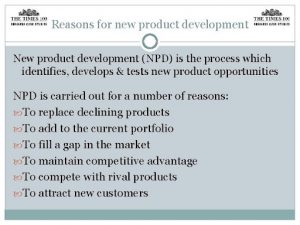With it being the season for the NBA Finals, Stanley Cup series, Copa America and UEFA Euro soccer tournaments, the best of the best talent in terms of teams and individuals for their respective sports have been on display. As with every team sport, there are fundamentals that, when mastered, help elevate the skill and abilities of both the individual player and the collective squad.
The same can be said of professionals across the business world. And, interestingly enough, many of these fundamental skills have strong reflections in skills needed to excel in team sports. In fact, there are a myriad of critical lessons that transfer from the court to your career, providing you a critical edge to your individual abilities while enhancing the performance of your cross-functional teams when embraced and mastered.
Here’s a look at five fundamental sport skills that can also elevate your career:
Play Your Position
“My responsibility is to get my twenty-five guys playing for the name on the front of their uniform and not the one on the back.” – Tommy Lasorda
As a coach, I am constantly telling my players to ‘trust their teammates.’ Even with lesser talent, teams with better position-play can overcome squads stacked with talent. Teams that play the game more as individuals than a cohesive unit often have egos serving as a driver for the team’s play. This myopic style with players who lack trust in their teammates and refuse to ‘do their job’ as Bill Belichick, head coach of the New England Patriots, says tends to result in disjointed execution.
When players get out of position and try to do things outside of their set responsibilities things can often go wrong as plays break down. Performing your role, whether as part of marketing, product, sales, client support etc. is one thing, but having a clear understanding of how your position coordinates with and supports the roles across other teams can be huge differentiator. Too many individuals focus squarely on their set tasks rather than responsibilities, failing to focus on how their roles impact those around them, while others tend to assume duties outside their set responsibilities ‘just to make sure it gets done.’ This latter approach of ‘doing it all’ tends to cause confusion, waste resources and erode trust across the team.
Fast Break: When everyone on the team knows their role and plays their position consistently, the squad has increased understanding, greater trust and tends to perform at a higher level.
Talk It Out
“Effective teamwork begins and ends with communication.” – Mike Krzyzewski
As a coach, I am regularly telling my players that ‘nothing gives them an advantage like communicating consistently.’ Teams that communicate on of the field or court tend to perform at a higher level, but more importantly have stronger trust among their ranks. They know the play being run, understand what everyone’s doing on the field and can quickly identify open opportunities take advantage of. Failing to communicate can transform a team’s play into a guessing game, wondering what each other is doing next.
The same goes for organizational teams. Communication delivers clarity and also fosters understanding. A lack of consistent communication forces team members to make assumptions and basically guess as to what their team members are focusing on or doing next. A simple as it sounds communication is one of the biggest shortcomings teams on the court or in the conference room tend to face. In fact according to a Root study, 71 percent of surveyed businesses say that communication improvement on something as simple as the company’s strategy is a focal point of their organization. Teams that communicate early in often understand the play and the steps towards achieving the objective in order to find success together.
Fast Break: If you want to excel and build trust with your team over-communicate on your decisions and actions on a consistent basis. But remember, communication is a two-way street that requires all sides to participate.

Play with Patience
“Whatever you’re doing, you must have patience.” – John Wooden
As a coach, I am constantly telling my players to ‘play with speed and control.’ As the old adage goes, ‘good things come to those who wait.’ Forcing or rushing plays can result in missed opportunities and create chaos for a squad and opportunities for your opponent. This happens more often then not when a player opts to go it alone to make a big play devoid of support or understanding from his teammates.
Patience, on or off the field, takes discipline and determination. In today’s world of instant gratification, many want instant results, which often turn out to be ill-execute plans that lack details, optimization, and efficacy. Patience requires strategy – to understand the strengths and weaknesses of your opponent or objective and identify emerging opportunities to capitalize on. Focusing on speed without control typically results in chaos. Patience largely results in control and precision of execution.
Fast Break: Success is often bred with patience, but patience doesn’t mean to just sit and wait on the sideline. It means you’re understanding your situation, identifying opportunities and executing on success in a methodical approach. It means you play fast with control.
Blend Your Skills
“If you’re not getting better you’re getting worse.” – Joe Paterno
Most sports require an array of skills. To excel at soccer, for example, players typically need a combination of strength, speed, finesse, stamina and agility, as well as refined footwork. This requires a spectrum of training elements in their regiment in order to refine their established skills and expand their fundamentals to enhance their play.
The same can be said for your career. Sitting back and relying on your established skillset will have you quickly falling behind as today’s digital world as it continues to evolve. Take the discipline of marketing for example, long gone are the days of the traditional focus on the ‘4 Ps’ (price, product, place and promotion). Savvy marketers are consistently refining their skills across both art and science from campaign measurement and SEO optimization to content development and creative design. Evolving your skill set through enhancement and expansion are powerful ways to strengthen your role, establish your position, deliver value and get ahead in your career.
Fast Break: Diversifying your skills on the court makes you a more valuable player. The same holds true in your career; picking your area of expertise and expanding your skill set provides tremendous value to your team and your future.

Follow Your Shot
“I skate to where the puck is going to be, not to where it has been.” – Wayne Gretzky
One of the most consistent lessons I teach my own players is to “follow your shot.” That is to never quit on a play and avoid assuming that your job is done just because the ball leaves your possession. Great things happen on second change rebounds, but only for those players who stay in the play through the whistle.
In your profession, this equates to simply failing to follow up. A simple differentiator between many who achieve success and those who struggle with finding it is the fact that the former individuals tend to “follow their shot.” Failing to follow up on an inquiry or invitation to meet or make a connection displays apathy or even incompetence with even basic tasks. Those who excel consistently follow up on their opportunities, doing what they say they’ll do. Again, this tends to be a rare skill in today’s fast-paced world.
Business & Finance Articles on Business 2 Community(26)
Report Post









